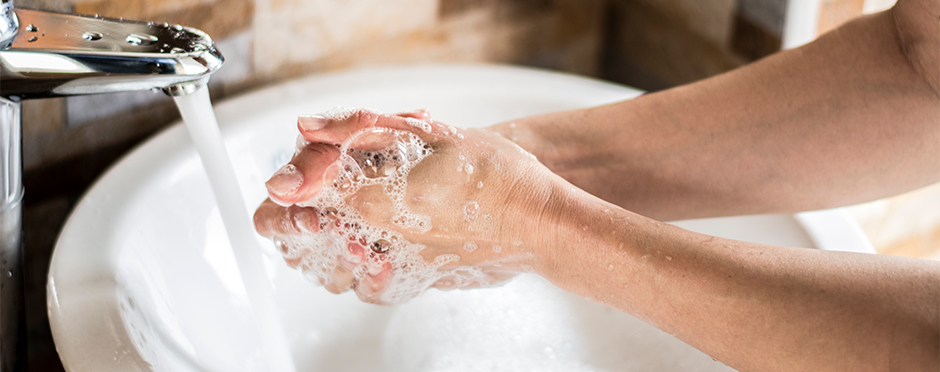
5 Hygiene Tips for Athletes
1 CommentSports provide an amazing opportunity for kids of all ages to spend time with their friends, learn from people they look up to, and begin understanding teamwork and the qualities that come with being a team player – including sharing! Sharing is a phenomenal trait for people to possess, until it includes germs and sickness. As sports slowly come back into the picture amid the current COVID-19 pandemic, it is more important than ever to ensure that athletes are taking the proper precautions to stay safe and healthy to avoid contracting or spreading the virus. So, as parents (or individuals), how can we protect our kids or ourselves from getting sick or sharing illness with others? The biggest factor in prevention is personal hygiene and there are tons of ways to incorporate this into our daily lives. Below are a few of the most important, and easiest, ones to consider:
1. Wash your hands!
This is something we’ve heard thousands of times, but it is among the most effective and easiest ways to prevent the passing of germs. Sometimes people wash their hands but don’t do it in the most hygienic way. A good rule of thumb is to make sure you use antibacterial soap, wash hands (front, back, and between fingers), and it should take you the same amount of time that it would to sing through “Happy Birthday” twice!
2. Shower after practices and workouts.
Workout equipment and practices in gyms is a great way for germs to spread as we are consistently moving between surfaces others have used with shared equipment. You should only use equipment that has been cleaned and sanitized from the person using it before. What’s more, bumping into or playing against other athletes can spread germs from person to person. Showering helps wash away those germs and prevents spreading the germs through physical contact after your practice or workout.
3. Keep sports equipment clean and dry.
Sports equipment and uniforms often get used multiple times per week or even per day, and oftentimes they don’t get taken care of the proper way. Sometimes athletes shove their equipment in a bag after practice and it doesn’t get washed or disinfected. It then sits in a zipped bag until the next practice or game and has had plenty of time for bacteria to multiply in a moist, warm environment. Making sure uniforms and individual protective equipment is disinfected and washed before being hung out to dry can help get rid of the germs and bacteria.
4. Don’t share water bottles.
It is common to share drinks with our teammates and friends, but this consistently opens us up to sharing germs in the process. Make sure to use your own water bottle or cup when possible and wash it consistently to keep germs and bacteria from forming and spreading.
5. Get plenty of sleep and practice healthy eating!
Sleep is the primary defense our bodies have to protect ourselves since it is the time our body gets rejuvenated and finds the energy to keep fighting. Sports can lead to burnout and exhaustion as the season grind nears the postseason stress, so it is important to achieve maximum rest so our bodies can heal and repair. Our bodies also utilize numerous vitamins and nutrients that can only be obtained from healthy eating to fight the bacteria we may encounter throughout the day. If we want our bodies to continue fighting for us, we have to provide it with the tools it needs to be successful. This is why sleep and healthy eating are vital to our success!
Back to Basics
While these tips may seem simple and repetitive, they are essential to keeping illnesses and germs from spreading. Even if sickness occurs despite these precautions, it is important to prevent spreading the germs from spreading by staying home and recuperating before getting back into the game (or gym)!
Learn more about Athletic Training Services
The Athletico blog is an educational resource written by Athletico employees. Athletico bloggers are licensed professionals who abide by the code of ethics outlined by their respective professional associations. The content published in blog posts represents the opinion of the individual author based on their expertise and experience. The content provided in this blog is for informational purposes only, does not constitute medical advice and should not be relied on for making personal health decisions.

1 Comment
Frank Ball
I liked your tip of using your own water bottle when participating in sports. My son is wanting to start playing football and I want to make sure that he is protected at all times during the game. I’ll be sure to tell him to keep his own water bottle when playing football.